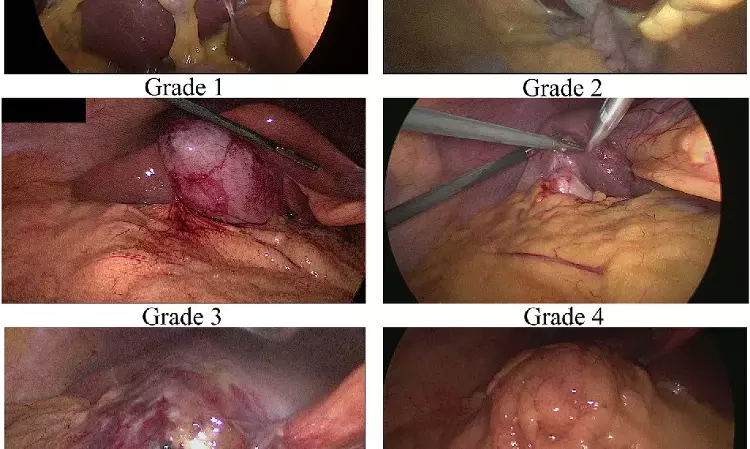- Home
- Medical news & Guidelines
- Anesthesiology
- Cardiology and CTVS
- Critical Care
- Dentistry
- Dermatology
- Diabetes and Endocrinology
- ENT
- Gastroenterology
- Medicine
- Nephrology
- Neurology
- Obstretics-Gynaecology
- Oncology
- Ophthalmology
- Orthopaedics
- Pediatrics-Neonatology
- Psychiatry
- Pulmonology
- Radiology
- Surgery
- Urology
- Laboratory Medicine
- Diet
- Nursing
- Paramedical
- Physiotherapy
- Health news
- Fact Check
- Bone Health Fact Check
- Brain Health Fact Check
- Cancer Related Fact Check
- Child Care Fact Check
- Dental and oral health fact check
- Diabetes and metabolic health fact check
- Diet and Nutrition Fact Check
- Eye and ENT Care Fact Check
- Fitness fact check
- Gut health fact check
- Heart health fact check
- Kidney health fact check
- Medical education fact check
- Men's health fact check
- Respiratory fact check
- Skin and hair care fact check
- Vaccine and Immunization fact check
- Women's health fact check
- AYUSH
- State News
- Andaman and Nicobar Islands
- Andhra Pradesh
- Arunachal Pradesh
- Assam
- Bihar
- Chandigarh
- Chattisgarh
- Dadra and Nagar Haveli
- Daman and Diu
- Delhi
- Goa
- Gujarat
- Haryana
- Himachal Pradesh
- Jammu & Kashmir
- Jharkhand
- Karnataka
- Kerala
- Ladakh
- Lakshadweep
- Madhya Pradesh
- Maharashtra
- Manipur
- Meghalaya
- Mizoram
- Nagaland
- Odisha
- Puducherry
- Punjab
- Rajasthan
- Sikkim
- Tamil Nadu
- Telangana
- Tripura
- Uttar Pradesh
- Uttrakhand
- West Bengal
- Medical Education
- Industry
Parkland Grading Scale may accurately assess surgical difficulty level of laparoscopic cholecystectomy

The Parkland Grading Scale (PGS) can accurately assess the surgical difficulty level of laparoscopic cholecystectomy (LC) suggests a new study published in the BMC Surgery
Parkland Grading Scale (PGS) is an intraoperative grading scale to stratify gallbladder disease severity during laparoscopic cholecystectomy (LC). We evaluated the usefulness of the PGS in predicting the difficulty levels of LC procedures using a novel approach.
Methods
A total of 261 patients diagnosed with cholelithiasis and cholecystitis who underwent LC were assessed. The PGS and the surgical difficulty grading system were used to evaluate surgical procedures by reviewing the operation videos. Clinical baseline characteristics and post-treatment outcomes were also recorded. Differences between the five PGS grades in terms of surgical difficulty scores were analyzed using the Jonckheere-Terpstra test. The relationship between PGS grades and surgical difficulty scores was assessed using Spearman’s Rank correlation. Finally, the linear trends between morbidity scores and PGS grades were evaluated using the Mantel-Haenszel test.
Results
There was a significant difference in the surgical difficulty scores for the five PGS grades (p < 0.001). In pairwise comparison, each grade (1–5) was significantly different from the others (p < 0.05) in terms of surgical difficulty, except Grade 2 vs. 3 (p = 0.07) and Grade 3 vs. 4 (p = 0.08). There was a significant correlation between PGS grades and surgical difficulty scores (rs = 0.681, p < 0.001). There was also a significant linear association between morbidity and PGS grades (p < 0.001). Spearman’s R value was 0.176 (p = 0.004).
Conclusion
The PGS can accurately assess the surgical difficulty level of LC. The precision and conciseness of the PGS make it suitable for use in future research.
Reference:
Liu, Yq., Wang, C., Cai, X. et al. Can the parkland grading scale predict the difficulty of laparoscopic cholecystectomy? A new approach to validation. BMC Surg 23, 142 (2023). https://doi.org/10.1186/s12893-023-02036-0
Keywords:
Liu, Yq., Wang, C., Cai, X., BMC surgery, Parkland Grading Scale, Laparoscopy, Laparoscopic cholecystectomy, Cholelithiasis
Dr. Shravani Dali has completed her BDS from Pravara institute of medical sciences, loni. Following which she extensively worked in the healthcare sector for 2+ years. She has been actively involved in writing blogs in field of health and wellness. Currently she is pursuing her Masters of public health-health administration from Tata institute of social sciences. She can be contacted at editorial@medicaldialogues.in.
Dr Kamal Kant Kohli-MBBS, DTCD- a chest specialist with more than 30 years of practice and a flair for writing clinical articles, Dr Kamal Kant Kohli joined Medical Dialogues as a Chief Editor of Medical News. Besides writing articles, as an editor, he proofreads and verifies all the medical content published on Medical Dialogues including those coming from journals, studies,medical conferences,guidelines etc. Email: drkohli@medicaldialogues.in. Contact no. 011-43720751


